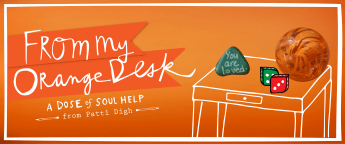When children die, they leave behind more than a small, silent body. They leave behind a thousand lives unlived. There is the child they were, yes, but also the teenager they never got to be, the adult they never became, the elder whose stories we’ll never hear. Grief in these cases is not just for what was lost, but for what never had the chance to be. It is a grief braided with longing, imagination, and aching curiosity. Who would they have become?
The death of a child is a rupture in the natural order. We expect the old to die, expect to bury our parents, not our babies. When a child dies, time itself feels offended, upended, disoriented. We stand at their small graves imagining birthdays they’ll never have, graduations they’ll never attend, hands they’ll never hold. The ache isn't just in the missing—it’s in the wondering.
At five, maybe she would have loved horses. At twelve, maybe he would have taken up the drums. By sixteen, perhaps they would have fought with us over curfews and curiously brought home first loves. At twenty, what cause would have set their hearts ablaze? We long to know their laughter at thirty, their steadiness at forty, their wisdom at seventy. But all of that is stolen. Not just a life, but a lineage of selves. The grief is infinite because the possibilities were.
This kind of loss haunts in a different way. We grieve actual memories, yes. First steps, toothless grins, little shoes lined by the door. But we are also tormented by the blank pages that follow. It is an absence that grows larger with each year. The world ages and reshapes itself, and still that child stays the same in our minds, forever six, or ten, or seventeen. Their peers grow taller, get married, go to college, post pictures of babies and new jobs, and each milestone is a knife.
What might they have done with their wild, miraculous chance at life? Would they have been shy or bold, artistic or analytical, restless or grounded? Would they have lived nearby or far away? Who would have loved them? What stories would they have told?
We can never know. And so, we imagine.
Some might say we must stop wondering, stop longing for what will never be. But I think the imagining is part of the love. To carry a child’s memory forward is to carry their potential, too. To honor who they were is to also mourn who they could have become.
Their lives, though brief, stretch out before us like shadow paths. And though we cannot walk those paths with them, we can pause beside them. We can speak their names aloud, keep telling their stories, and remember not only what we had, but all we hoped for.
Because the truth is: when a child dies, they do not disappear. They remain, etched into our futures as surely as they were held in our arms. Not in the way we wanted, no. But in the quiet, persistent way of love that refuses to forget.
And perhaps that is the most sacred thing we can do: to remember them as whole beings, not just for the years they had, but for the ones they were never given.
Love,
Patti






this is beautiful. This part resonated with me: "But I think the imagining is part of the love. To carry a child’s memory forward is to carry their potential, too. To honor who they were is to also mourn who they could have become."
Heartbreak of epic proportions.